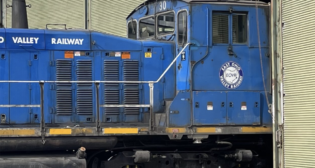
Fitch cites railroad challenges—and strengths
Written by Douglas John BowenFitch Ratings says it views "weak year-to-date rail volume trends as a reflection of fundamental shifts in demand patterns for key industrial commodities as domestic production of unconventional oil and gas resources continues to grow."
Fitch also pointed out: “Careful management of capacity, cost control, and solid pricing power have allowed major railroads to weather the 2012 carload weakness effectively.”
In a report released Monday, the credit ratings company noted that “for the month of April, coal carloads fell by 16.6% versus April 2011, the largest year-over-year decline for coal shipments on record. Year-to-date coal carloads are down 11.3%.”
While finding a number of positive signs for traffic in the months ahead, Fitch concluded: “In light of the unevenness of the U.S. recovery, the outlook for rail volume growth over the remainder of the year appears relatively weak.”
These were key points in the report:
“The biggest factor driving weak domestic demand for coal continues to be the declining price of natural gas produced in the U.S. and the ongoing shift away from coal as a feedstock for electrical utilities … It remains unclear whether or not a secular shift away from coal is under way, given the potential for gas prices to rebound if supply growth slows.”
“We see underlying demand patterns for other key industrial products as more resilient early in the year, belying the overall rail volume contraction. In particular, shipments of autos and auto parts remain quite strong, with April freight volumes up by 21.1%. This mirrors the broader strength in U.S. consumer demand for new vehicles that has been evident since the start of the year.”
“Intermodal shipments have shown more strength in 2012, growing by 2.8% for the year through April 28. Intermodal traffic, including both containers and trailers carried on trains, often serves as a better proxy for consumer demand than shipments of bulk commodities.”



